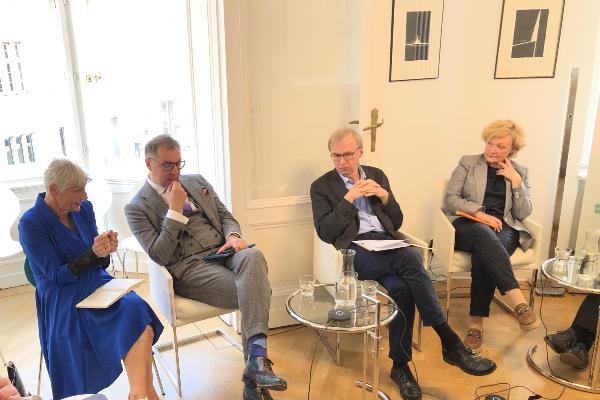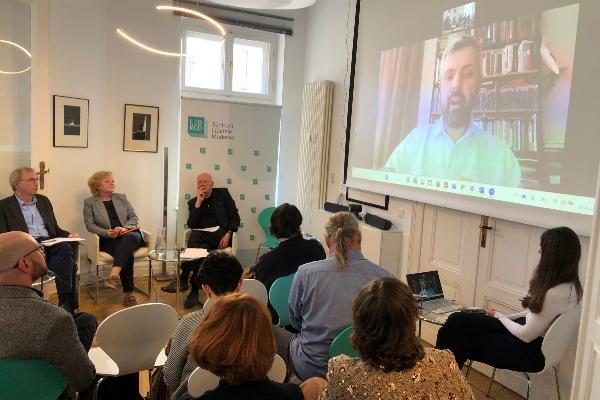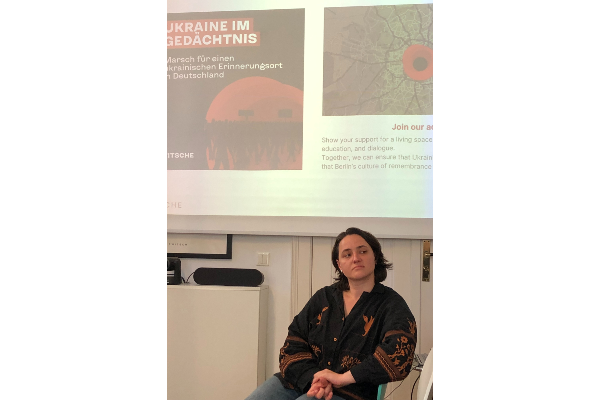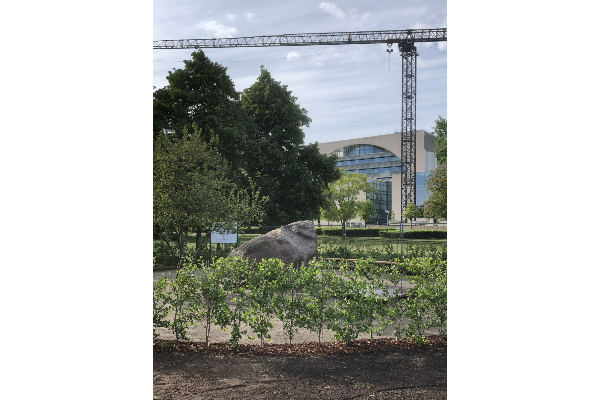On May 6, the Mykola Haievoi Center for Modern History, the German-Ukrainian Historical Commission and the Center for Liberal Modernity hosted a panel discussion entitled “May 8, 1945 and Russia's war against Ukraine - how can we remember the end of the war today?”.
80 years after this war: a “dangerous battle for memory” is ongoing. MHC historians took part in a World War II commemoration event, one of more than a hundred that took place in Berlin in May.
How can we remember World War II today, having a new war in Europe? A panel in Berlin’s thinktank Center for Liberal Modernity, on the eve of May 8th, showed that this question is open again. Professor Gelinada Grinchenko, historian with the German-Ukrainian MHC, deplored that the Russian memory is caught again in the “Soviet loop”. There is a “dangerous battle for memory”, she said. “The European model of Never Again is confronted by the Russian position of We can do it again. The Russian model is not about history, actually. It’s about how to shape the future.” Philosopher Anton Drobovych, head of the Ukrainian Institute of National Memory in difficult times (2019-2024), now with the Kyiv School of Economics, joined the debate from Kyiv on video and was supportive of Grinchenko’s views.
Once again in Germany, as during the famous “Historikerstreit” dispute in the 1980’s, the question is coming up whether we can and should compare Nazi and Soviet rule and the crimes of both regimes. Panelist Marieluise Beck, head of LibMod, recalled these questions as well as the furious debate around the so-called Wehrmacht exhibitions in the period of 1995 through 2004. It had shown that not only the SS, but also the “ordinary men” of the German army and police took part in mass crimes. Finally, American historian Timothy Snyder came with his book “Bloodlands”, describing Nazi and Soviet crimes in Central and Eastern Europe together. “Snyder has changed the German memory”, Beck summarized.
Grinchenko and Kai Struve, MHC head research group told the public that the roots for Putin’s war since 2022 lie not in WWII or in Ukraine, but in the fact that Russia had not come to terms with its Soviet past and its crimes. Panelist Oleksii Makeiev, Ukraine’s ambassador to Berlin, while strongly condemning Russia’s today’s war crimes in his country, warned against “comparing them to the Second World War crimes”, and the public showed its consent.
He drew the listeners’ attention to another problem: “We Ukrainians don’t have a place in Berlin where we could lay flowers for our victims of the Second World War.” Iryna Shulikina, head of the Berlin-based Ukrainian NGO Vitsche, followed suit and presented her organisation’s appeal for a “Ukrainian place of remembrance”, a specific Erinnerungsort (lieu de mémoire, according to French historian Pierre Nora) in Berlin. Such a place could join the other Nazi victims’ memorials in Berlin, all near the Reichstag building and the Brandenburg Gate: for the murdered Jews, for Sinti and Roma, for homosexuals and recently for the victims of Nazi rule in Poland. The latter, an idea coming from Germany’s civil society, has evolved into a broader project of a “German-Polish House”, but still is far from being realised. To overcome the standstill, adherents of this idea, gathered around Peter Oliver Loew, head of the Darmstadt-based Deutsches Polen Institut, have placed a 30-ton “Memorial Stone for Poland 1939 - 1945” in Berlin. This monument, a Glacial erratic (German term: Findling), was erected in April 2025 between the Reichstag building and the new Federal Chancellor’s office. “We know how much time and energy it took to get through with all these memorial projects”, Beck told Shulikina, suggesting to work on the Ukrainian one with patience.
Report: Gerhard Gnauck




